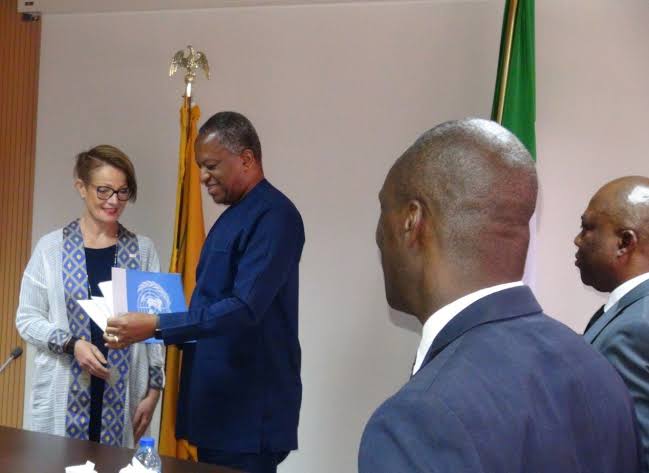UN Population Fund (UNFPA) on Sunday reiterated its commitment to the promotion of gender equality.
SEE ALSO:(Video): Why I won’t date a girl that has more than 1k followers – Rema
Mrs Kori Habib, the Media Associate of UNFPA, said this in a statement made available to News Agency of Nigeria (NAN) in Abuja in commemoration of the 2020 International Women’s Day (IWD).
Habib stated that UNFPA would continue to collaborate with relevant stakeholders to create the right environment that would expand possibilities for women and girls to lead healthy and productive lives.
She noted that “we are committed to the empowerment of women and girls, the creation of a level playing field for women and girls, ensuring they fulfil their potential and fully represent themselves at the decision-making table.”
The media associate, who commended the Minister of Women Affairs for empowering many woman with skills to hold on to, reiterated UNFPA’s pledge for continued support to improving the health, wellbeing and development of women and girls, to ensure equal participation in political life and decision-making.
According to her, the fund will continue to support government to achieve zero Gender Based Violence, zero preventable maternal deaths and zero unmet need for family planning, and eliminate harmful practices.
She listed programmes lined up by the fund to commemorate this year’s IWD to include National Symposium with the theme: “I am Generation Equality”, Realising Women’s Rights for an Equal Future” in Abuja
Habib said it was time for all to operationalise commitments to advancing gender equality worldwide, saying that “an equal world is an enabled world.
“Twenty five years ago, the Beijing Platform for Action set out how to remove the systemic barriers that hold women back from equal participation in all areas of life.
“The 12 critical areas of concern are: poverty, education and training, health, violence, armed conflict, economy, power and decision-making, institutional mechanisms, human rights, media, environment and the girl child.”
She, however, said that the real change being sought for was still slow for majority of women and girls in the world, noting that “not a single country can claim to have achieved gender equality; multiple obstacles remain unchanged, in law and in culture.
“Many women are still unable to make informed decisions about basic human rights such as her right to access sexual and reproductive health services.
“The girl child is still denied the right to education and staggering numbers of women and girls nationally and globally survive gender based violence and harmful practices – their only crime being that they are females.”




 Premier League
Premier League